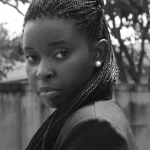Nigeria's judiciary, once considered the last hope of the common man, has fallen into a dangerous state of political capture and manipulation. Executive interference in Nigeria's justice system has become a significant problem that fundamentally undermines the rule of law. While the judiciary is constitutionally independent with powers vested in the courts, the reality shows a far different picture - one of political meddling and compromised autonomy. The consequences of this judicial degradation are devastating for Nigeria's fragile democracy.
In recent years, growing judicial interference in political affairs has reached alarming levels. The United World Congress of Diplomats (UN-WCD) condemned this trend in February 2025, highlighting disturbing patterns of conflicting court orders and alleged bias by judicial officers in states like Rivers, Osun, Benue and reently in the Edo 2024 Election where INEC decleared "Fake Results" and a tribunal led by Justice Kpochi ignored the evidence, and endorsed electoral fraud,. These aren't isolated incidents but represent a systematic effort to weaponize the judiciary against political opponents.
For the judiciary to function independently, the nepotism, tribalism, and political considerations that currently dominate the appointment of judges must be replaced with a fair, standardized, and transparent system. But as long as the Executive maintains its influence in the appointment and removal of judicial officers, it's impossible to envision a truly independent judiciary. This has created a crisis where courts increasingly issue contradictory rulings that serve political interests rather than justice.
Nigeria's democratic experiment is failing primarily because its critical institutions have been methodically captured by ruling elites. The Independent National Electoral Commission (INEC), despite its enormous powers to deliver credible polls, has been unable to do so in reality due to institutional weaknesses, demonstrated by its lack of adherence to guidelines, corruption, and lack of independence. The ruling political party's heavy influence over INEC's activities has created an electoral system that consistently favors those in power.
A party's dominance in Nigeria's electoral process is reinforced through unequal access to state institutions (election management bodies, security agencies), financial resources, and mass media. The ruling party has systematically undermined opposition parties since Nigeria's return to democratic rule in 1999. This pattern has intensified in recent years, with electoral manipulation becoming increasingly sophisticated.
The fourth and most recent iteration of Chatham House's national household survey in 2023 revealed a severe crisis in public trust in Nigeria. The police were the most distrusted institution, with 46 percent of respondents stating they distrust the police "greatly." The president and federal government ranked second and third least trusted, with 36 and 35 percent respectively expressing great distrust. This collapse of public confidence reflects the failure of governance at all levels.
Despite Nigeria formally operating as a multi-party democracy, the political landscape is increasingly dominated by a single party system in practice. The electoral dominance of the two major parties is not based on programmatic or ideological linkages but rather on the distribution of patronage resources and incumbent electoral advantages. Local politicians indicate that personal traits and campaigns are more important than party affiliation. This creates a system where political parties merely serve as vehicles for personal enrichment rather than platforms for national development.
The 2023 elections demonstrated how deeply compromised Nigeria's electoral system has become. The election campaign was marred by numerous problems, including poor intra-party democracy, persistent political violence, and court rulings that lacked clarity. On election day, widespread delays, violent disruptions of the voting process, and questions of outright results manipulation left millions of voters disenfranchised.
From 94 million registered voters, only 24.9 million votes were recorded—a record low percentage. The irregularities fed arguments over INEC's declaration that former Lagos state governor, Bola Ahmed Tinubu won the race with a reported 37 percent of votes. When opposition candidates challenged these results, the supposedly independent judiciary predictably sided with the ruling party, further eroding public trust in the electoral system.
During the ballot counting process, opposition parties walked out, with representatives stating, "We regret to say that we have lost confidence in the results being collated and announced." Though INEC had promised to upload results directly from each polling unit to its website to guarantee transparency, the electoral commission failed to fulfill this promise in many places. This pattern of electoral manipulation has become standard practice, allowing the ruling party to maintain its grip on power regardless of the actual will of the voters.
Corruption serves as both a cause and consequence of Nigeria's democratic backsliding. Despite some successes with anti-corruption reforms, corruption has long held back Nigeria's development, undermining the country's democracy, governance, and economic growth, while eroding public trust in institutions. Analysis of Nigeria's anti-corruption efforts over the last 25 years reveals uneven progress, too often set back by politicization, weak institutions, and double standards among leaders.
Efforts to tackle corruption since the end of military rule in the late 1990s have yielded uneven results, hindered by politicization, weak institutions, and double standards among leaders. The failure to reduce corruption has led to political clientelism and impunity, creating a perception among citizens that there is no accountability for corrupt officials. This environment of impunity has allowed the gradual dismantling of democratic safeguards without meaningful consequences.
Corruption in Nigeria is a constant phenomenon, with the country estimated to have lost over $400 billion to corruption since its independence. Politicians find themselves in strong positions of power and wealth due to their connections with the oil and gas industries, which are under the control of the state-owned company NNPC Limited. This concentration of economic power translates directly to political dominance, creating a self-reinforcing cycle of corruption and anti-democratic governance.
Nigeria's democratic experiment stands at a critical juncture. The evidence is overwhelming that the current system has been corrupted beyond incremental reform. The judiciary has been captured, electoral processes manipulated, and democratic institutions hollowed out from within. Citizens are increasingly disillusioned with a system that has consistently failed to deliver on its promises.
Given these realities, revolution may indeed be the only path forward for Nigeria. The gradual slide toward one-party rule, facilitated by a compromised judiciary and a captured electoral commission, cannot be reversed through the very institutions that have been undermined. When democratic channels for change are blocked, people must consider more direct methods of reclaiming their sovereignty.
Nigeria's future hangs in the balance. The declaration of fake results in elections by the supposedly independent INEC has become common practice, while corruption flourishes with impunity. The judiciary, meant to be the guardian of constitutional democracy, has instead become an instrument for its destruction. In such circumstances, citizens have not just a right but a duty to resist the dismantling of their democracy.
Revolutionary change need not imply violence, but it must involve a fundamental restructuring of Nigeria's political system—one that breaks the grip of corrupt elites, restores the independence of key institutions, and creates genuine accountability to the Nigerian people. Without such transformative change, Nigeria risks becoming a democratic facade hiding an increasingly authoritarian reality.
The time for half-measures and incremental reforms has passed. Nigeria requires a new beginning—a revolutionary reset that can build truly democratic institutions worthy of its people's aspirations.



You must be logged in to post a comment.